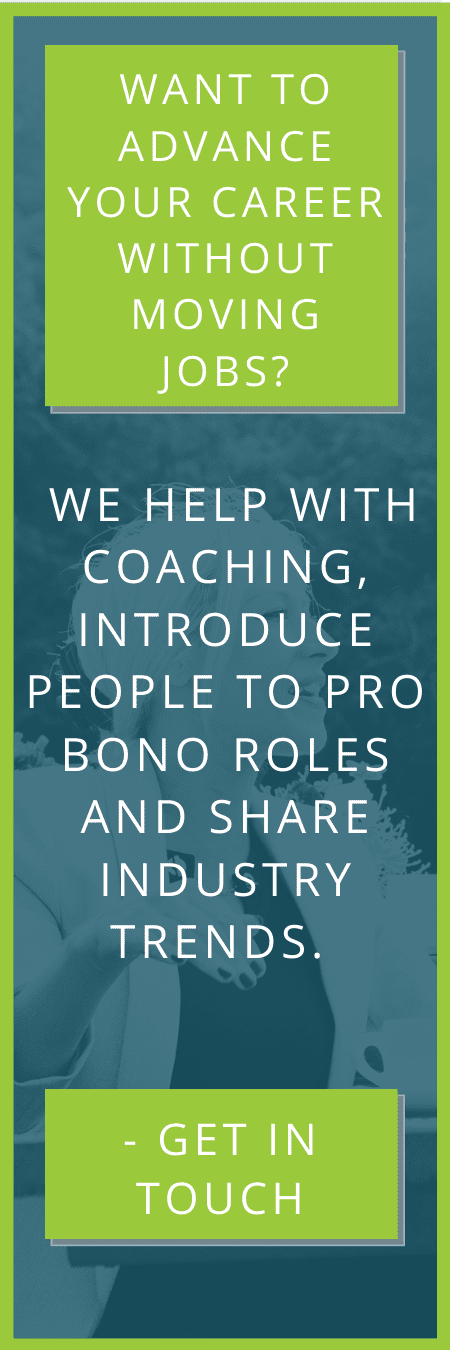How to work out what you really want before starting your job search.
Written by: Kris Flanagan, Managing DirectorOne comment we frequently hear from candidates that have been offered the first position they have interviewed for is, “…it’s only the first thing that I have looked at, so I need to meet a few other companies to compare this against”. Then as the candidate goes off to ‘explore’, the company invariably recruits someone else.
I totally agree that an informed decision is wise, but it doesn’t necessarily mean comparing it to several others. Instead, informed should be weighing it up against the criteria that you set out to find!
So how do you establish if the first one is the right one?
The best way is to be crystal clear on what you are looking for so that when it comes along, you will recognise it. Whether it’s the first thing you have considered or the tenth.
Here is my list of 5 areas that all job seekers should consider (and be clear on) BEFORE starting an interview process.
Culture
The first thing to point out is that a lot of people confuse culture with benefits. The ability to work remotely isn’t culture, it’s a benefit. A Christmas shut down isn’t culture. It’s a benefit.
Culture is about values, purpose, vision. It’s about how a company translates these into action.
When working out what you want to find in a culture, think about your own core values. Until you establish those, you won’t know if a firm is aligned with you or not. Here is a handy link to establishing your core values
Next, consider what you would like to see in an organisations purpose. For example, some firms are all about profit, some about their local community, and some about protecting the planet. What’s important to you? Work that out and find companies that align.
Understanding your own core values and purpose you’d like to be part of will help you ask insightful questions at the interview. From there, you will be able to see if the firm really lives and breathes its culture or if it’s all just words on a website.
Role content – now and next!
Crucial to any job search is working out what you actually want to be doing every day. The role you are seeking should be a mix of things you are currently doing (and therefore will add value quickly to your new employer) but ALSO offer you stretch (or challenge). Try not to move for a like for like of your current job. Instead, find something that will help you grow and develop both professionally and personally.
Try writing a list of things you do currently and separating that list into the things you love doing, things you don’t mind doing, and things you hate doing. Then, try and find a role that encompasses more of the LOVE and less of the HATE in your next role. Additionally, make a list of skills you are looking to develop and look for a role that can offer these.
Also, think about where you want to be in 3 years. In doing this, you will be able to ask questions at the interview about where the role could lead and how it will keep you challenged moving forward. Ask for examples of current team members that have progressed internally, which will indicate how regularly it happens.
Who’s in charge?
Taking time to work out how you like to be managed (or led) is key to any job search. Thinking about who you have enjoyed working for and who has helped you progress the most (these aren’t always the same people!). Considering this will help you work out what you are looking for in a leader.
When considering if a job is right for you, think about the person who interviewed you (assuming they will be your manager) and whether they match the profile of someone you want to work for. Ask them questions about how they have developed people in their team, aspirations, and core values.
Also, consider who their manager is. This is important for two reasons. First, that person will be developing your manager, and if that isn’t happening correctly, then the knock-on effect to you is likely to be similar. Second, if your manager leaves, it will be up to that person to replace them, and you will want to be secure in the knowledge that they will find someone else that will be good for your career.
Package
Long gone are the days where moving a job was all about a salary uplift. Instead, benefits packages now encompass everything from remote working, technology, learning & development budgets to base salary, pension, bonus, annual leave, and much more.
Think carefully about what is important to you and what you need to have in your next package. Make a list and separate it into essential and desirable. Don’t waiver on your essential list, but be realistic that everything on the essential AND desired list will be hard to find. List the desired elements in order of importance, and this will help you weigh up offers as they come in.
Logistics
This might seem simple, but some people get to the final stage of a 3 stage interview process only to turn down an offer as they don’t actually want to commute 30 minutes in the morning. Where a business is located is unlikely to change during an interview process, so spend time thinking about the logistics of what you need in a role. How far will you travel? What family or life commitments do you have during the week that you cannot miss? How much travel (domestic or international) are you prepared to do?
If you spend the time well and consider these five areas before starting your search, you will be well placed to weigh up opportunities as you see them. If the first one that comes along matches your requirements, you will be safe in knowing that you are making an informed decision, regardless of how many other interviews you attend.
Want to advance in your career without moving jobs? We can help with coaching, introducing people to pro bono roles, and share industry trends. Our consultants aren’t just interested in getting you a new job, so why not arrange a call with one of them today?
finding this interesting?
Why not share it with friends?
It's good to talk
Get in Touch






